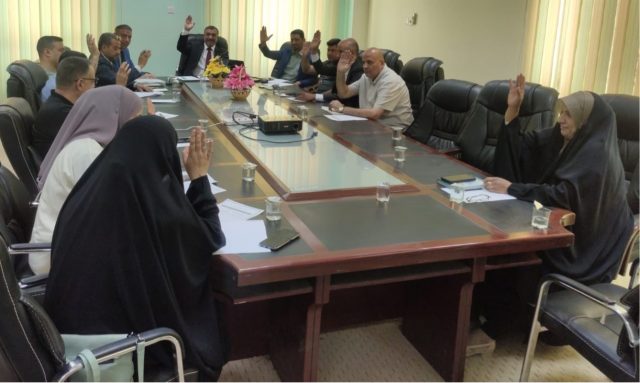This blog post is part of a two-part series on transparency in Iraq. Click here to read the first blog in the series.
Communication is vital to any political system. Decisionmakers need to know what constituents want in order to advocate for favorable and demanded legislation. If policymakers don’t listen to the people who vote them in, trust can be eroded. So, what happens when no lines of communication exist? Or when decisionmakers are not voted into their positions? Those decisionmakers may lack incentives to address constituents’ priorities. Over time, poor communication and accountability gaps can contribute to economic stagnation.
The Challenge: Hearing Constituent Voices
In Muthanna province, in 2014, the General Secretariat of the Council of Ministers established provincial Planning and Development Councils (PDCs) to play advisory roles in setting provincial development priorities and action plans.
However, the 2014 executive order that created this system does not require the councils to solicit input from the constituents in each province. Furthermore, the public does not select PDC members. They are appointed by a province’s governor, meaning Iraqi citizens do not have direct influence on what PDCs choose to address. Priorities don’t always reflect the full range of views in the public and private sectors. However, engagement with the PDC by civil society organizations and private sector representatives allows for prioritizing the needs of a wider array of stakeholders.
Strengthening CSO-Government Partnerships
CIPE’s partner, the Ther Development Center (Ther), which specializes in economic development and the promotion of democracy throughout Iraq, saw this governance gap and mobilized to give the citizens of Muthanna a louder voice regarding the decisions of their PDC. In early 2023, Ther gathered its private sector coalition to brainstorm ideas to increase community participation and perspectives in PDC meetings and decisions. That led to a solution: a quarterly discussion including CSOs and the Muthanna PDC, to ensure community engagement. Ther members agreed to lobby the PDC to adopt this solution, and the PDC’s members voted unanimously in favor.

Why the Muthanna Win Matters
For the first time since the PDC’s inception, Muthanna’s citizens have a direct communication line to the authorities that impacts setting provincial development priorities. Civil society organizations, private sector representatives, and individuals have greater opportunities to advocate for their priorities and speak directly with Muthanna’s provincial decisionmakers. The first meeting is expected to be held in August or September. This decision should help build trust and cooperation. If it proves successful in creating meaningful and demand-driven policy, this mechanism could be used across Iraq to amplify the voice of Iraqi citizens in other provinces.
Published Date: August 09, 2023